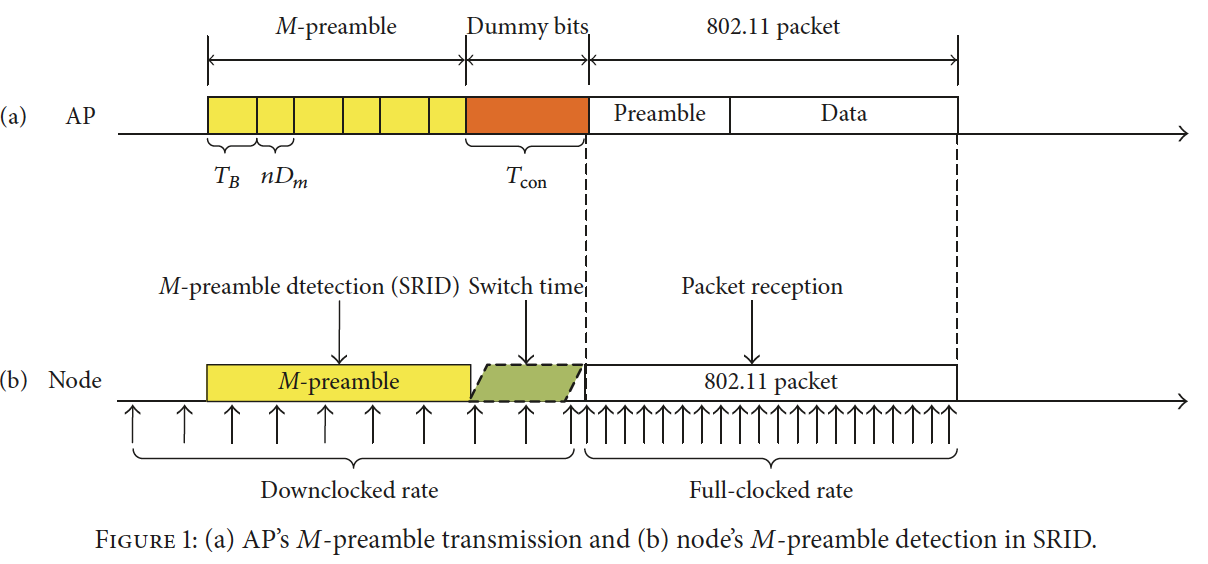Detection Performance of Packet Arrival under Downclocking for Mobile Edge Computing
Mobile edge computing (MEC) enables battery-powered mobile nodes to acquire information technology services at the network edge. These nodes desire to enjoy their service under power saving. The sampling rate invariant detection (SRID) is the first downclocking WiFi technique that can achieve this objective. With SRID, a node detects one packet arrival at a downclocked rate. Upon a successful detection, the node reverts to a full-clocked rate to receive the packet immediately. To ensure that a node acquires its service immediately, the detection performance (namely, the miss-detection probability and the false-alarm probability) of SRID is of importance. This paper is the first one to theoretically study the crucial impact of SRID attributes (e.g., tolerance threshold, correlation threshold, and energy ratio threshold) on the packet detection performance. Extensive Monte Carlo experiments show that our theoretical model is very accurate. This study can help system developers set reasonable system parameters for WiFi downclocking.


Leave a Reply